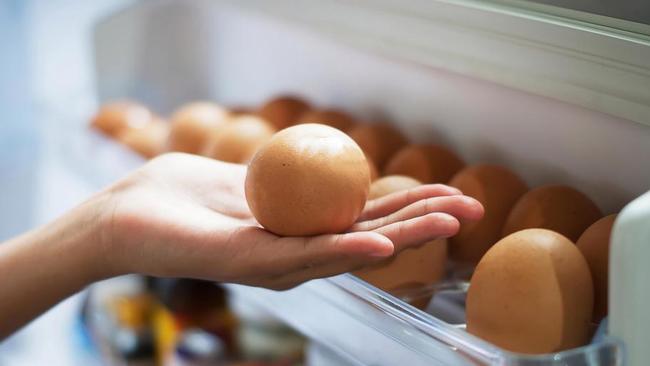Many households automatically store eggs in the fridge, but some experts argue that keeping them at room temperature may actually be the better choice. While refrigeration is common in some countries, eggs can stay fresh and safe without it under the right conditions. Here’s why you might want to skip the fridge when storing eggs.
1. Eggs Have a Natural Protective Coating
Eggs come with a natural barrier on their shells that protects against bacteria and moisture. In many countries, eggs are sold with this coating intact, making refrigeration unnecessary. However, in places like the U.S., eggs are washed to prevent salmonella, removing this natural shield. As a result, refrigeration is recommended in such cases.
In colder climates, storing eggs in the fridge can cause condensation, which breaks down this protective layer and increases the risk of contamination when eggs return to room temperature.
2. Eggs Stay Fresher for Longer at Room Temperature
Storing eggs at room temperature in a cool, dry place can help maintain their freshness. Refrigeration can lead to condensation buildup, accelerating spoilage by weakening the eggshell’s defenses.
Room-temperature eggs can last around 3–4 weeks, sometimes even 5 weeks, depending on their freshness at purchase. In contrast, refrigerated eggs may absorb odors from other foods, affecting their quality over time.
🔗 Related: Are Two Eggs a Day Too Much?
3. Room Temperature Eggs Taste Better
Cold storage can alter the taste of eggs. Refrigeration affects the fats in the yolk, leading to a slight change in flavor and texture. Room-temperature eggs retain a richer, more natural taste, making them ideal for dishes like scrambled eggs, omelets, and baking recipes.
4. Better Baking Results
Baking experts recommend using eggs at room temperature for optimal results. Cold eggs can cause batter to stiffen, affecting the texture of cakes and pastries. Room-temperature eggs mix more evenly, helping baked goods rise better and achieve a fluffier texture.
When Should You Refrigerate Eggs?
Although room temperature storage works well in many situations, refrigeration is necessary in some cases:
✔️ If you live in a hot and humid environment
✔️ If the eggs have already been washed or processed
✔️ If you plan to store eggs for an extended period
In such scenarios, refrigeration helps prevent spoilage and ensures food safety.
By understanding the best way to store your eggs, you can enjoy fresher, tastier meals while maintaining food safety. Would you consider ditching the fridge for egg storage? Let us know in the comments!























